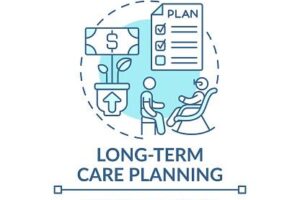Category Archives: Long-Term Care

What Is End of Life Care?
Most of us associate the estate planning process with thinking ahead for what will happen to your assets or even care for your minor children after you pass away. But end of life care considerations can also raise critical questions that affect you and your loved ones. If you have specific wishes regarding the… Read More »
Americans Hopeful For More Long Term Care Information And Support
A recent study completed by Nexus Insights shows that many older Americans have increasing questions about long term care and the best way to support themselves in the future. If you wind up with an illness or injury, your only option to treat it might be entering a nursing home or other long term… Read More »

What Do You Know About Long-Term Care?
Lincoln Financial Group recently completed a study showing that only 16% of adults are familiar with the benefits and features of long-term care solutions. Long-term care refers to needs typically handled inside a nursing home or other health care facility for someone who is unable to complete activities of daily living. Long-term care solutions,… Read More »

How Many People Don’t Have the Resources to Support Themselves with Long-Term Care?
Long-term care expenses can be catastrophic for a single person or even for the other spouse of a married couple. Most people anticipate aging in place or relying on family and friends as caregivers. But extensive long-term care needs might require assisted living or a nursing home. A recent study indicates that 60% of… Read More »

What Are Coverable Long Term Care Events?
In order for a long term care event to be covered under your long term care insurance policy or Medicaid, your doctor must indicate that you are unable to perform at least two activities of daily living. You may see these referenced in paperwork as ADLs. The other circumstance that could qualify you to… Read More »

New Study Shows One Third of People Don’t Have What It Takes for Minimal Long Term Care
Who will foot the bill if you need a nursing home? That’s a question popping up for more and more families in America these days. Long term care insurance is extremely expensive and premiums have been on the rise in recent years. This doesn’t bode well for those people who are most likely to… Read More »

Am I Eligible for the Virginia PACE Program?
PACE is an integrated program of care for Virginia residents age 55 or more who meet the following criteria: Have been certified as meeting functional needs for a nursing facility level of care. Will be able to safely reside inside a PACE service community. Live inside a PACE service area. PACE services can be… Read More »

Do You Need Medicaid in Virginia for Your Long-Term Care?
At least 50% of healthy Americans above age 65 will need some form of long-term care in the future. This can come in the form of home care, assisted living or nursing home care. This kind of care might be necessary but regardless of the setting it can be very cost prohibitive. There are… Read More »

Does Your Elder Law Plan Include Long Term Care Insurance?
You might not know just how many people rely on long-term care to deal with an ongoing or a short-term medical issue, but the odds show that there’s a good chance you’ll need long term care in the future. If you don’t have any other plan in place and you don’t qualify for Medicaid… Read More »

Are You Concerned About Long Term Care Costs?
Does your estate plan account for long-term care costs? If not, you could end up paying out of your own retirement savings to cover necessary expenses for your care or for a spouse’s. Studies have found that most people over age 65 will eventually need help with daily tasks of living, such as getting… Read More »
